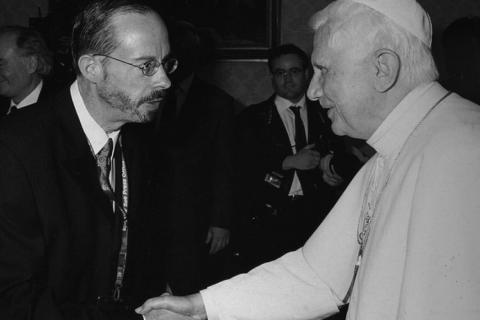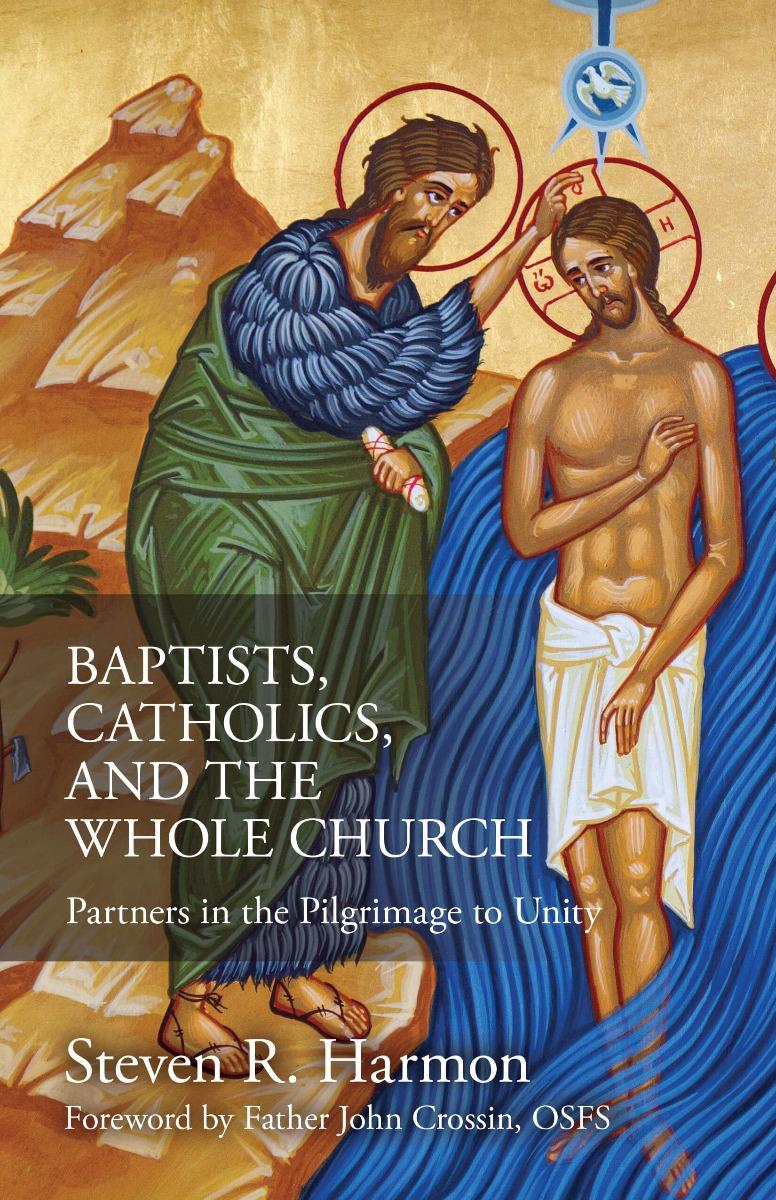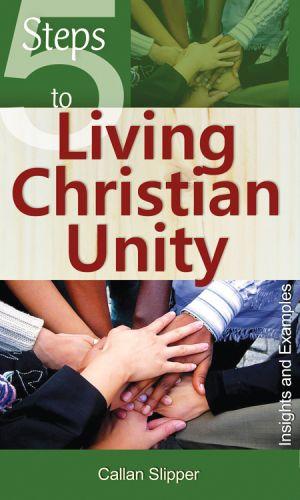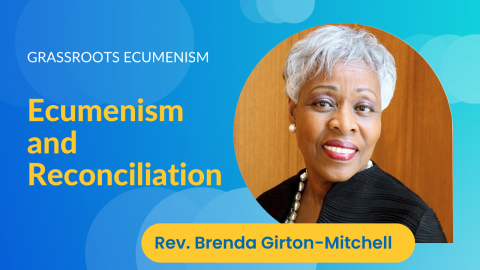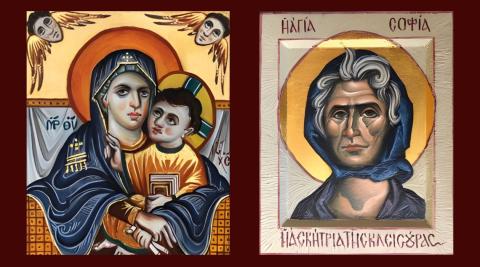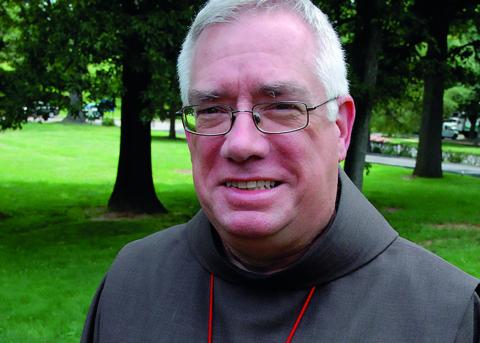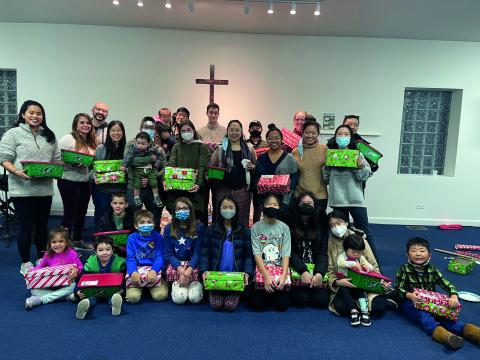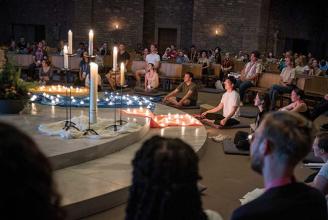
Photo by oikoumene.org (2)
A remarkable ecumenical event took place in Karlsruhe, Germany from August 13 to September 8. More than 4,000 Christians from every continent, representing around 250 different churches or ecclesial communities, descended on this city to pray and work together around the theme “Christ’s love moves the world to reconciliation and unity.”
Rev. Dr. Angelique Walker-Smith, a member of the National Baptist Convention and WCC president from North America, said the assembly built community.
“Although any of us wondered if an assembly would even be possible because of Covid and other intersectional issues, but at last the prayers and diligent labors involved prevailed, and God’s grace was extended for this.”
Ecumenism of the heart
It was the 11th Assembly of the World Council of Churches (WCC). This event aimed to affirm that the quest for Christian unity is founded on the love of God for humanity, and that precisely this love is what moves the world to reconciliation and unity.
So an “ecumenism of the heart” was the message that Christians present aimed to convey to the world. Before the assembly, WCC delegations visited some of the open wounds that bleed in today’s world, including Ukraine and the Middle East.
“Will we be witnesses of this beautiful and eternally faithful love in this wounded world?”
This question was posed by the new moderator of the Central Committee (governing body of the WCC), Lutheran Bishop Heinrich Bedford-Strohm, preaching on St. John’s words “God is love, and who abides in love abides in God, and God in him or her.”
A community of peace
This was a very timely event in today’s world situation, sadly the scene of wars, climatic disasters, injustice and poverty. All themes taken up during the assembly’s program showed the churches on the front line in their words and actions to alleviate the urgent needs of suffering humanity, while being global advocates of peace and justice.
As Archbishop of Canterbury Justin Welby in his address said: “In this time of world crisis, Christians are to be a community of peace” who live amidst the “ecumenism of suffering.”
The experience of a community built up on God’s love was the outcome of this dynamic multifaceted event, rooted in daily Bible studies, as well as morning and evening prayer services where participants prayed according to many different liturgical traditions, both western and eastern Christianity and Pentecostal worship.
A unique space for dialogue
As Acting General Secretary Romanian Orthodox Rev. Ioan Sauca underlined, the WCC offers a unique space for dialogue.
In his report he affirmed, “My prayer has been that the WCC can be a space for dialogue, for listening to and caring for one another, and for just peace and reconciliation.”
He touched on requests from several sources to “expel” the Russian Orthodox Church from the fellowship of the WCC, saying that after consultation with the leadership of the central committee, they responded:
“The WCC was created as an open platform for dialogue and encounter, for discussion and challenging one another on the path to unity. Unless it was because of the theological reasons mentioned in its basis, the WCC did not exclude anybody unless they excluded themselves.”
Delegations from churches in Ukraine and the Russian Orthodox Church were present at the assembly.
Reconciliation among ourselves
“How can we credibly proclaim the Gospel of reconciliation without also being committed, as Christians, to promoting reconciliation among ourselves?” asked Pope Francis in his message to the assembly.
“I ask God that this assembly strengthen everyone’s commitment towards a more intense cooperation in the search of a fuller and more visible communion. Reconciliation among Christians is the fundamental prerequisite for the credible mission of the Church. Ecumenism and mission belong together and interrelate.”
Reconciliation implies action
This title of the recent joint working group report between the Roman Catholic Church and the WCC states what has been on the ecumenical agenda for some time, the need to walk, pray and work together, and, as Pope Francis has often affirmed, “walking together is already unity.”
While not a member of the WCC, the Catholic Church has for over 50 years worked very closely together in the joint working group, as well as being a full member of the WCC’s theological department, Faith and Order. It was present with a delegation at the assembly.
The assembly, a milestone on this pilgrimage, was the continuation of the 10th assembly in Busan (Korea) in 2013. Since Busan the pilgrimage of justice and peace has gathered momentum, and this common ecumenical journey as a pilgrimage of reconciliation and unity is now the paradigm that guides the WCC’s work.
“We can advance only if we walk together” underlined Sauca.
Ecumenism of the people
Commenting on the pilgrimage image, Olav FykseTveit, presiding bishop of the Church of Norway and former WCC general secretary, said that it “opened up new involvement in the WCC’s work, not only for specialists but for anyone.”
The voices of the youth, loud and clear, were heard and were encouraged. Their participation, not only as stewards but also as delegates of their churches and communities, engendered much optimism for the future of the ecumenical movement, as did a meeting of over 100 young people in the Global Ecumenical Theological Institute program that offered ecumenical formation to emerging theologians.
Not just churches were represented at the assembly. There were also a variety of ecumenical associations and movements, including members of the Taizé and the Focolare Movement.
Assembly participants mingled with local people at the numerous stalls with information about the activities of churches, associations and advocacy groups, which were displayed like a marketplace in the Brunnen (German for “well”) area that lined the streets outside the Congress center.
The town of Karlsruhe generously took the assembly on board, organizing numerous events given by assembly participants.
The planet’s greatest threat: climate change
These stalls also gave participants from areas affected by climate change, such as the Pacific, to voice their suffering outside of the assembly. “Living Planet: seeking a just and sustainable global community” was the title of the assembly statement voicing concern and demand for action.
In his message to the assembly, Patriarch Bartholomew underlined, “If we are to make any change in our priorities and lifestyles, we must do so together—as churches and communities, as societies and nations.”
He also echoed what other church leaders had said: “Yet, even as we look around, we are obliged to confess that we have not practiced—and continue to fall short of—what we have preached over 20 centuries.
“How can we reconcile our magnificent faith with our manifest failure? What is required is nothing less than a radical reversal of our perspectives and practices.”
Rediscovering the spiritual passion of the past
This challenge launched by Archbishop Welby found an echo in the assembly’s Unity Statement: how members can “magnify their enthusiasm towards Christian unity.”
Anyone experiencing the joyful exuberant but prayerful and solemn worship service that closed nine days of intense life together would be greatly understating by remarking, “The enthusiasm at the assembly was not lacking!”
Dr. Walker-Smith treasured the worship and prayer times. “The contributions from the world in our devotional life were powerful and inspirational, not only for the assembly but for our being back to our regional homes…
“The ecumenical conversations and Brunnen engagements were particularly engaging and allowed us to go beyond the face of the issues and to create community exploration at the micro and macro levels.”
For more on the 11th Assembly, see the WCC website oikoumene.org.





